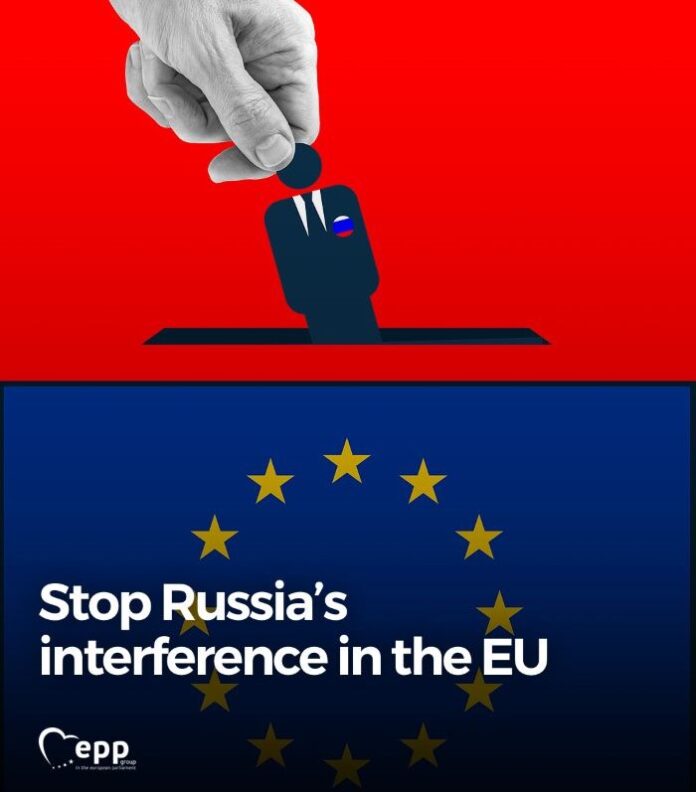The European Parliament should introduce stricter rules to prevent Russian interference in the European Parliament says the EPP Group. Events organised on the Parliament’s premises, external guests invited and the use of Parliament’s TV and radio studios and other resources must be more thoroughly scrutinised, the EPP Group insists ahead of today’s plenary debate on the Russiagate scandal.
“It is alarming that foreign agents are disseminating Russian propaganda unhindered in the EU institutions. In doing so, they are undermining the unity of our society, spreading hatred and distrust of European values, and promoting populism and extremism. Since Russia’s aggression against Ukraine, the European Union has been increasingly exposed to a wide range of hybrid attacks. The presence of foreign agents in the European Parliament and other institutions poses significant risks to our security and credibility,” says MEP Sandra Kalniete, who is one of the initiators of the debate.
In addition to the recent revelation that MEP Tatjana Ždanoka has a long history of working for Russian intelligence, MEPs are sounding the alarm over the relationship between Catalan secessionists and the Russian government. Former separatist leader and current MEP Carles Puigdemont met with former Russian diplomats on the eve of Catalonia’s illegal referendum in October 2017.
The planned parliamentary resolution, to be voted on Thursday, lists how the Kremlin has sponsored and supported far-right parties in Europe. Among others, it provided Marine Le Pen’s party with a € 9.4 million loan in 2013. MEPs from the ID and Left Groups, as well as non-attached Members, have been known to express pro-Kremlin propaganda in the Parliament. This includes extreme calls for the destruction of Europe by MEP Miroslav Radačovský, who received payments from Russian sources to observe the 2021 parliamentary elections in Russia. According to the resolution to be voted on, the European Parliament’s communication channels, such as the ‘VoxBox’ video recording facility, have been used to create pro-Kremlin and anti-EU disinformation content.
“Russia has a permanent strategy of illegitimate influence and attack on the EU’s democratic Institutions and stability. We must be aware of the seriousness of this strategy and confront it with all its consequences,” stresses Javier Zarzalejos MEP, who negotiated the resolution on behalf of the EPP Group.
“We need practical changes to the Code of Conduct for MEPs to prevent similar cases in the future. A screening procedure should be introduced for all the European Parliament’s staff, including MEPs’ offices. The Parliament’s resources must not be used against the values of the EU, nor for the dissemination of hostile information by authoritarian regimes,” Kalniete emphasises.

